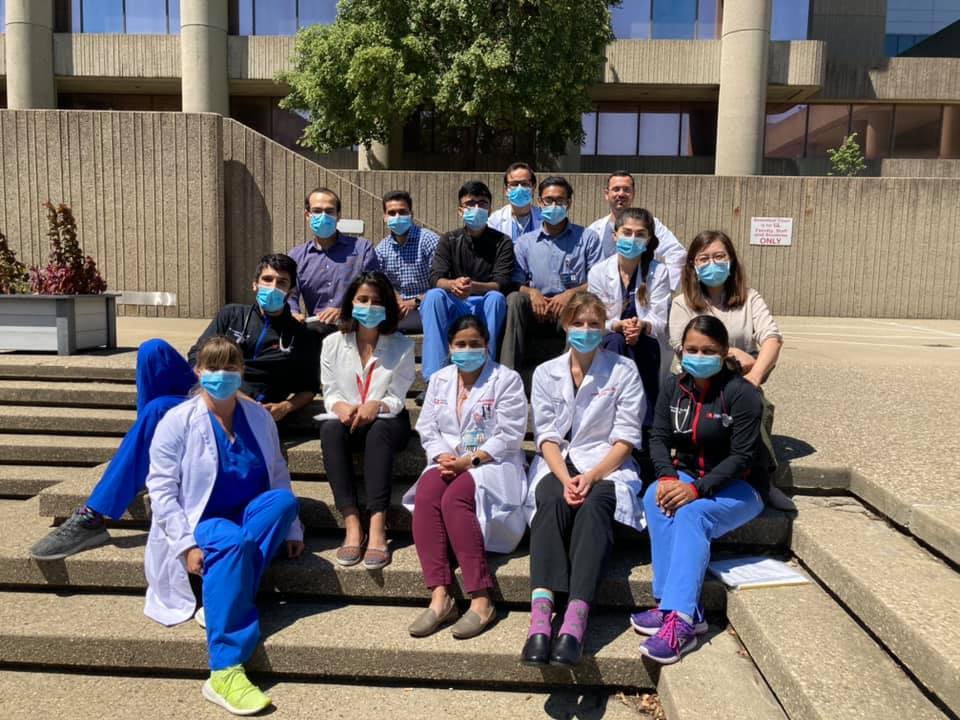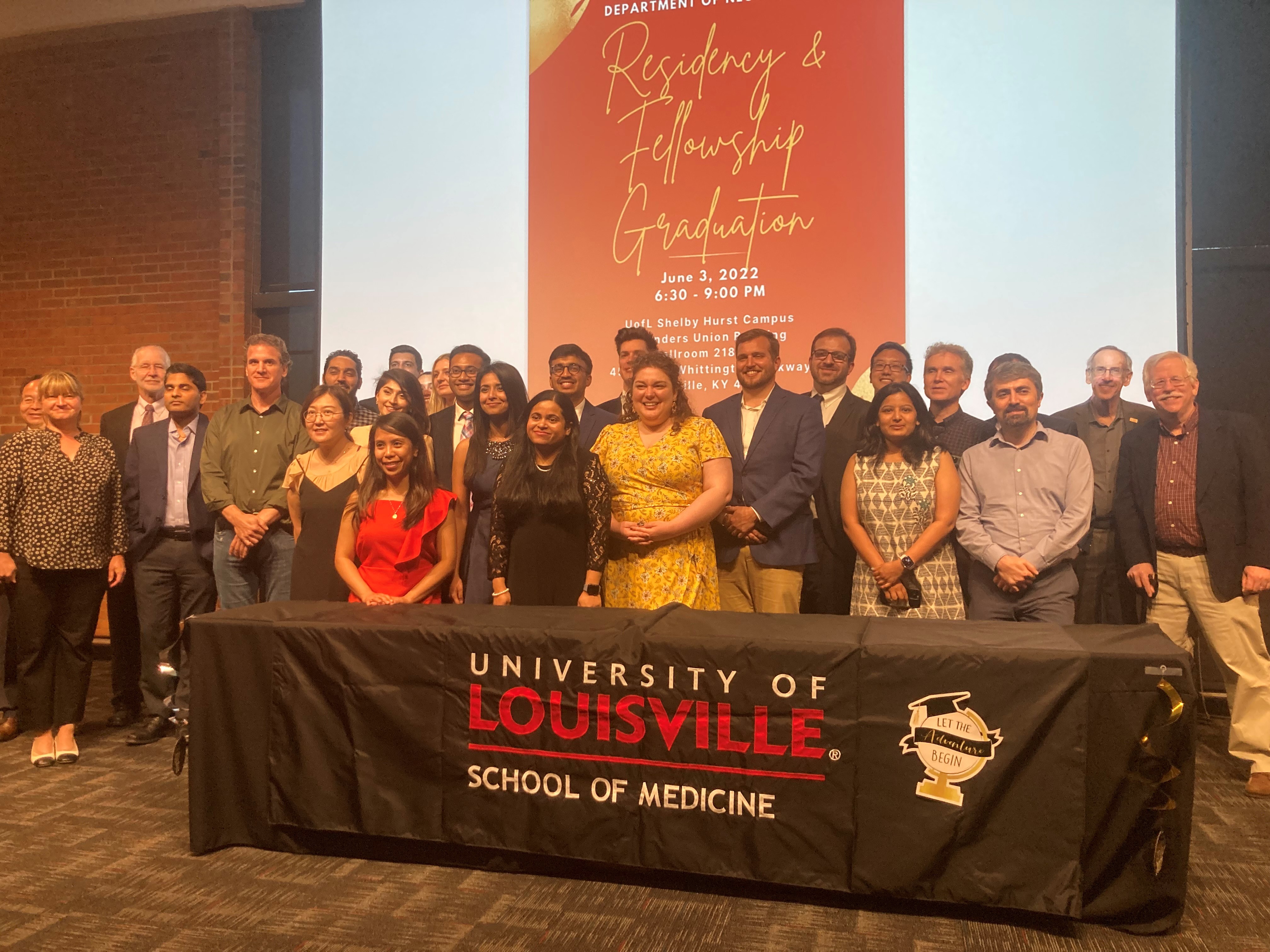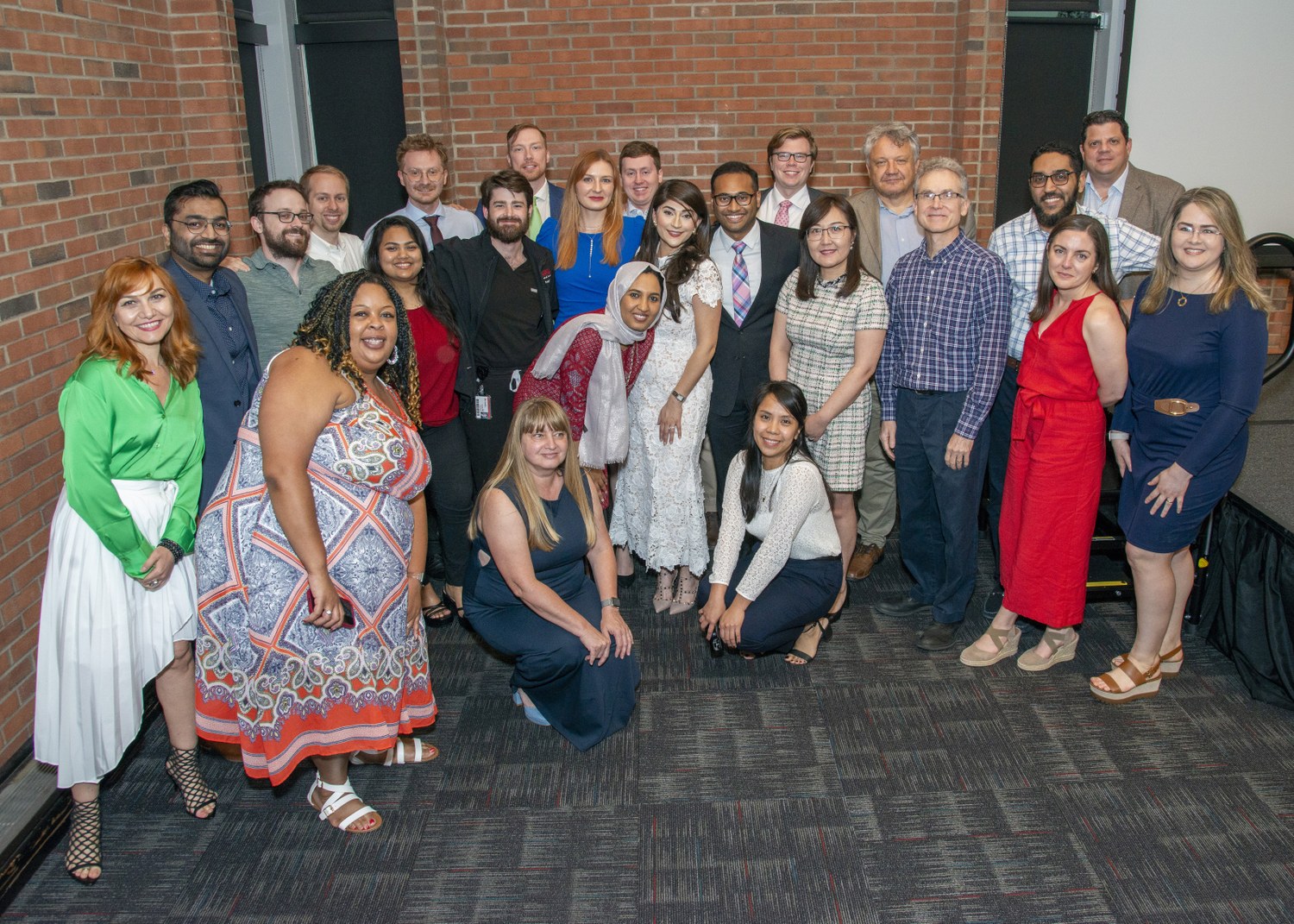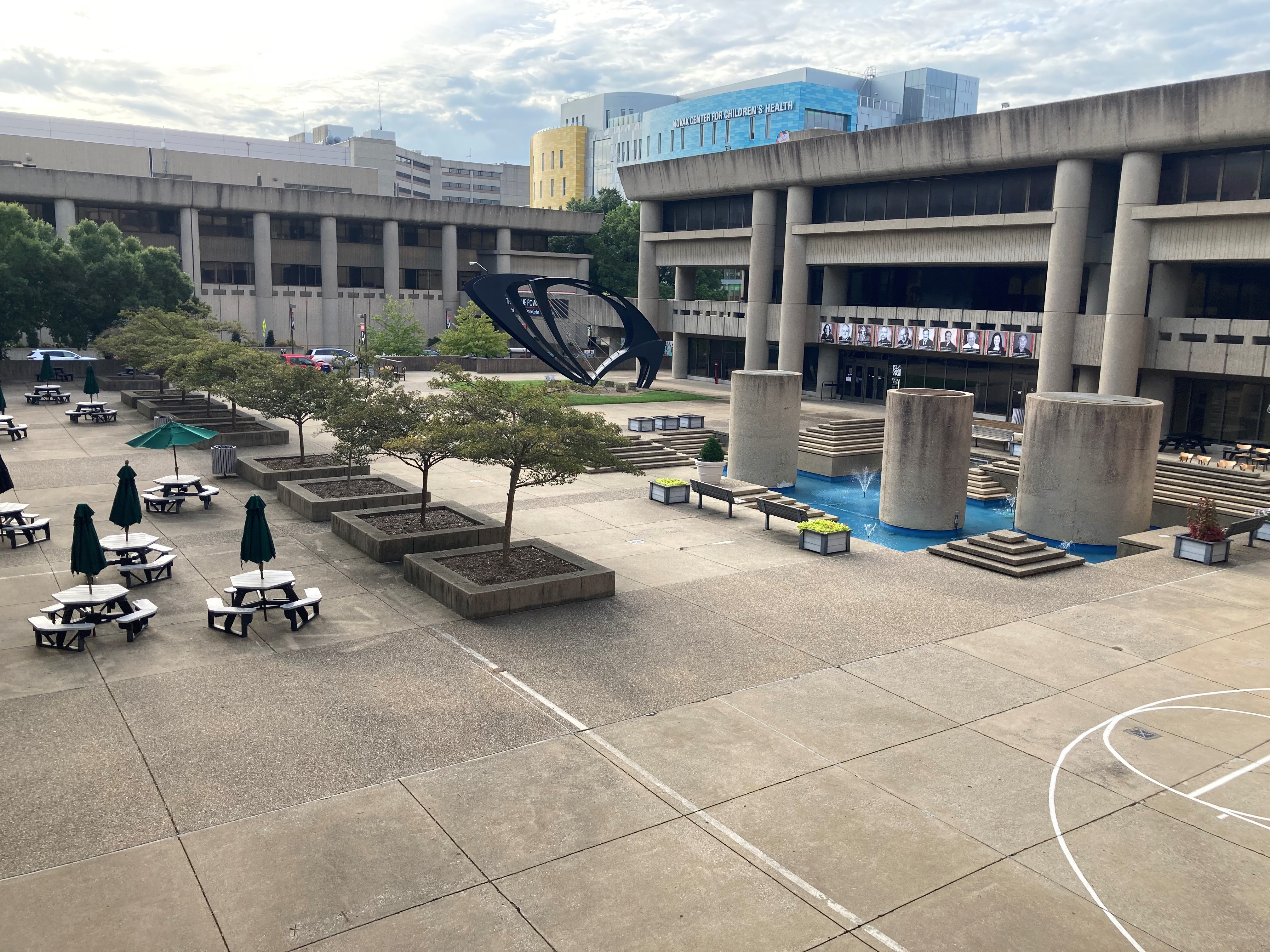University of Louisville Neurology Program
**We are not accepting any outside requests for observerships /externships/ visiting residents or students/etc for 2024-2025**
The University of Louisville, School of Medicine (UofL SOM) Neurology Residency program is an ACGME accredited training, (ACGME #1802021042) under the directorship of Dr. Adriana E. Palade since September 2016.
UofL Neurology will start accepting applications when ERAS opens in September 2024 for 6 -PGY1 positions (listed in ERAS as Categorical- Neurology- NRMP Code: 1217180C0) to start July 1, 2025. We will accept applications until December 10th. Virtual interviews are held between late October 2024- January 2025.
Please do not email application documentation to the Program Director or Coordinator.
Applicants MUST be registered with NRMP to participate in the 2025 NRMP Match. Applicants who are not registered with NRMP cannot be considered for a residency position.
**We are not accepting any outside requests for observerships /externships/ visiting residents or students/etc for 2024-2025**

UofL SOM Requirements:
For all PGY levels, UofL SOM utilizes only the J1 Visa; changes to visa status must be completed before training can begin.
FMG’s must have current ECFMG certification
J-1 Visa, green card, EAD or US citizenship
Graduates of medical schools in the United States and Canada accredited by the Liaison Committee on Medical Education (LCME).
Graduates of medical schools in the United States and Canada accredited by the American Osteopathic Association (AOA).
Graduates of medical schools outside of the United States and Canada who have current valid certificates from the Educational Commission for Foreign Medical Graduates (ECFMG). In addition, schools located outside the U.S. and Canada must
Be officially recognized in good standing in the country where they are located
Be registered as a medical school, college, or university in the International Medical Education Directory
Require that all courses must be completed by physical on-site attendance in the country in which the school is chartered.
Possess a basic course of clinical and classroom medical instruction that is not less than 32 months in length; and
under the educational institution’s direct authority
Non-US Citizens Requirements
Applicants who are not citizens of the United States must possess or be eligible for one of the following:
J1 Clinical Visa
Valid Employment Authorization Document
Valid Permanent Resident Card
The following arenot accepted for residency or fellowship training
J1 Research Visa
J2 Dependent Visa
H1B Visa
Program Specific Requirements:
USMLE scores must be a 210 or above, passed on first attempt; COMLEX scores 450 or above, passedon first attempt.
All steps must be completed prior to entering PGY-2 year
ERAS Letters of recommendation (LOR)
focus on Neurology interest
LOR from a Program Director and Department Chair
FMG’s should have at least one (1) LOR from US Clinical Experience
Medical School Graduation:
Candidates with five (5) or more years after graduation: We would expect to see detail accounting of where the candidate has been, what the candidate has been involved in since graduation, and their contribution to neurology detailed in a neurology focused personal statement.
Substantial US clinical experience is preferred
Short term observerships are not viewed as a substantial US clinical experience
Program does take into consideration limitations caused by the COVID-19 pandemic
All four years of training are at University of Louisville, School of Medicine, Department of Neurology
Kentucky Board of Medical Licensure (KBML) Requirement
First year resident’s licenses will be processed through the Graduate Medical Education Office. The resident must obtain an “R” or “Full” license BEFORE the beginning of their PGY2 year of training through the Kentucky Board of Medical Licensure. (http://kbml.ky.gov/)

Residency background
The neurology residency training program is designed to train clinical neurologists who will provide comprehensive, evidence-based care for people with disorders of the nervous system. Neurology is undergoing major changes due to advances in technology, new medications and a focus on treatment paradigms based on prospective clinical trials. The neurology residency program provides three years of intensive training combining supervised clinical practice, research opportunities, medical center-wide lectures and conferences, and small group discussions. We regard our residents as colleagues in training, and strive to provide an exciting and collegial environment for mutual, life-long learning.
Clinical experience
The clinical experience consists of a mixture of inpatient and outpatient general and subspecialty neurology, neurodiagnostics, child neurology, neuroradiology and psychiatry. Residents assume increasing responsibility for supervised patient care as they gain confidence and experience by PGY level.
Inpatient experience
Residents are exposed to both common and rare neurological disorders while providing inpatient admitting and consultative services at the University of Louisville Hospital, Jewish Hospital, and Norton Children's Hospital. Separate subspecialty inpatient experience is provided on the Epilepsy and Multidisciplinary Stroke services.
Resident Outpatient and Elective Opportunities
Residents are exposed to outpatient care for patients with neurological disorders in our general and subspecialty clinics at the University of Louisville Outpatient Center, Ambulatory Care Building, Frazier Rehab and the Novak Center for Children's Health. Subspecialty clinics provide comprehensive experience in epilepsy, stroke, cognitive and behavioral neurology, neuromuscular disease, neuro-ophthalmology, movement disorders, multiple sclerosis, neuroimmunology, headache, child neurology, neurogenetics, clinical neurodiagnositics (EMG/NCS, EEG, evoked potentials), neuroradiology, psychiatry, pain management, neuro-anesthesia.
Within the confines of the requirements for board certification, residents are encouraged to tailor their elective experiences to suit their individual interests.
Click here for information on new subspecialty tracks for residents
Research opportunities for residents
Faculty members in the Department of Neurology are involved in clinical and laboratory-based research in epilepsy, spinal cord injury, movement disorders, peripheral neuropathy, dystonia, stroke, dementia and multiple sclerosis. Residents are encouraged to participate in research activities, design their own projects and present the results of their work at national meetings


 Facebook
Facebook